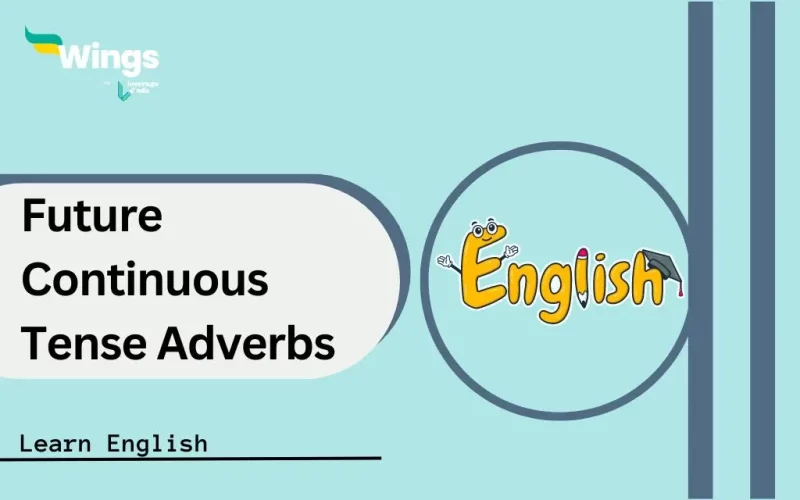Future Continuous Tense Adverbs: Have you ever thought in the English language, how future continuous tense can be constructed? The easy trick is subject + will be + verb in ‘-ing’ form. On the other hand, an adverb modifies a verb, adjective, or another adverb. It is usually modified by telling how, when, where, why, under what conditions, or to what degree. When both are combined, they make a sentence clearer and more informative.
However, there is more to the role of adverbs in tenses than meets the eye. Therefore, this blog is a one-stop destination for learning everything about the tense with adverbs from their meaning to examples with ease.
This Blog Includes:
Read more: Adverbs – Definition, Types, Use, Examples & Exercises
What are Future Continuous Tense Adverbs?
In these tenses, adverbs typically function the same way they do in the present continuous tense. They modify the verb and provide information about the duration or timing of the action. However, there are no specific adverbs unique to the future continuous tense. Here are some common adverbs used with the tense, categorised by the type of information they convey:
- For a while
- Until
- Throughout
- Soon
- Later
- Tomorrow
- Next week/month/year
- Still
List of Future Continuous Tense Adverbs
Here are some of the examples that students can refer to and use in their sentence formation:
Usage of Future Continuous Tense Adverbs
Having adverbial words and phrases with the future continuous tense can help provide extra information about the timing or manner of an action that will be continued in the future. Here are some examples of adverbs in the tense according to their usage for easy learning:
Time Adverbs
Adverbs such as “tomorrow,” “next week,” “in two hours,” etc., can be utilised with the future tense to specify when the action will be happening.
Example: “They will be working tomorrow evening.”
Frequency Adverbs
Adverbs such as “always,” “often,” “usually”, etc., can be utilised to show how often the action will be happening in the future.
Example: “We will be traveling often next week.”
Manner Adverbs
Adverbs that explain how something is done, like “carefully,” “quickly,” “quietly,” etc., can be added to show how the action will be performed in the future.
Example: “He will be speaking slowly during the seminar.”
Explore more reads on Adverbs below!
| Interrogative Adverbs | Adverbs of Frequency |
| Conjunctive Adverbs | Adverb of Time |
| Adverbs for Manner | Adjective vs. Adverb |
11+ Examples of Future Continuous Tense Adverbs
Below is a mixture of sentence examples having the future continuous tense with adverbs:
- We will be watching the series tonight.
- They shall be taking some rest in the mid-day.
- It will be cloudy tomorrow.
- We will be going for a morning walk today.
- They shall be doing holiday homework tomorrow.
- I shall be reading for you.
- The party will continue all night long.
- My life will be different from now on.
- The conference will be held the day after tomorrow.
- The package will be delivered by today itself.
- I will relax at the beach while they are working.
- They will meet with the client from 8 to 12 on Tuesday.
Future Continuous Tense Adverb Quiz
Instruction: Choose the correct option to complete the sentences.
- They ________________ a presentation on global warming next week.
- will be giving
- will give
- are giving
- gave
2. The bus __________________ at 8 pm tomorrow.
- arrives
- will arrive
- will be arriving
- is arriving
Check Your Answers Here!
- a) will be giving
- b) will be arriving
Learn About All Types of Tenses Here!
This was all about the future continuous tense adverbs and more in English grammar. Hope you understand the concept and know how to proceed. You can also follow the page of Leverage Edu for more exciting and informative blogs.
 One app for all your study abroad needs
One app for all your study abroad needs














 45,000+ students realised their study abroad dream with us. Take the first step today.
45,000+ students realised their study abroad dream with us. Take the first step today.

